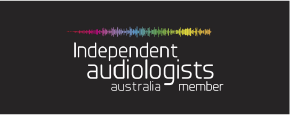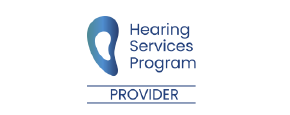Are you looking for a hearing test in Kippa Ring?
Are you having difficulty communicating? Our expert audiologists at Hearing Help can help improve your hearing clarity. Book your consultation today and reconnect with the sounds and people you love!
Hearing Test in Kippa Ring Brisbane
Are you looking for Hearing Test in Kippa Ring Brisbane? We are conveniently located within the Newport Physio and Health clinic at Newport Marketplace. We offer comprehensive hearing tests and personalised audiology solutions to residents in Newport 4020 and surrounding areas. Conducted by experienced audiologists and hearing specialists, these assessments identify potential hearing problems and their underlying causes. Regular hearing tests are crucial for early detection and intervention, helping prevent untreated hearing loss consequences such as isolation and decreased self-esteem. At Hearing Help, a range of tests, including pure tone audiometry and speech audiometry, are utilised. By exploring the hearing test process and its benefits, individuals can take proactive steps towards enhancing their overall quality of life.
About Hearing Help
Operating at the forefront of hearing care technology, Hearing Help specialises in delivering personalised audiology solutions to individuals in Kippa Ring, Brisbane. Our team of experienced audiologists and hearing specialists are dedicated to providing comprehensive and compassionate care to those seeking hearing assessments, diagnoses, and treatments.
At Hearing Help, we recognise that every individual’s hearing needs are unique. As such, we employ cutting-edge technology and innovative methods to tailor our services to meet the specific requirements of each client. Our state-of-the-art facilities are designed to ensure a comfortable and supportive environment, allowing our patients to feel at ease throughout their consultation and treatment process. We also offer a range of services, including hearing tests, hearing aid fittings, and tinnitus management, all designed to address the diverse needs of our clients. By focusing on individualised care and utilising the latest advancements in hearing care, we strive to enhance the quality of life for those affected by hearing loss in our community.
Why Choose Hearing Help?
Hearing Help provides their hearing services in the surrounding areas of Newport 4020 Brisbane.
Importance of hearing health and regular hearing tests
Maintaining good hearing health is crucial for overall well-being, as it plays a significant role in communication, social interaction, and cognitive function. Regular hearing tests are essential to identify any hearing issues early on, allowing for timely intervention and treatment. If left undiagnosed and untreated, hearing loss can lead to feelings of isolation, decreased self-esteem, and increased risk of dementia and depression. Furthermore, hearing tests can also detect other underlying health conditions, such as earwax buildup, middle ear infections, or balance disorders, enabling prompt treatment and prevention of further complications. By prioritising hearing health and undergoing regular hearing tests, individuals can take proactive steps towards preserving their hearing and overall quality of life.
What is a Hearing Test?
Conducting a comprehensive assessment of an individual’s auditory function, a hearing test is a thorough evaluation designed to measure the sensitivity, range, and overall health of one’s ears. The primary goal of a hearing test is to identify any potential hearing problems, diagnose the underlying causes, and provide recommendations for treatment or management. A hearing test typically involves a series of procedures and assessments, conducted by an audiologist or hearing specialist, to gather detailed information about an individual’s hearing abilities.
Through a hearing test, clinicians can assess various aspects of auditory function, including pure-tone thresholds, speech understanding, and middle ear function. The results of the test are then used to create a personalised audiogram, which provides a visual representation of an individual’s hearing abilities. This valuable information allows clinicians to identify any hearing impairments or abnormalities, and develop tailored treatment plans to address these issues. By undergoing regular hearing tests, individuals can proactively monitor their hearing health and address any problems early on, helping to prevent further damage or complications.
Types of Hearing Tests
To accurately assess an individual’s auditory function and identify potential hearing problems, various types of hearing tests are employed, each designed to evaluate specific aspects of hearing health. Pure Tone Audiometry is one of the most common hearing tests, which assesses an individual’s ability to detect different frequencies of sound. Speech Audiometry, on the other hand, evaluates an individual’s ability to understand and repeat spoken words.
Tympanometry is another type of hearing test that examines the middle ear function by assessing the movement of the eardrum and the reflexes of the middle ear muscles. Acoustic Reflex Testing evaluates the stapedius muscle’s response to loud sounds. Otoacoustic Emissions Testing assesses the inner ear’s ability to produce sounds in response to stimulation.
Bone Conduction Testing and Auditory Brainstem Response (ABR) testing are also used to assess specific aspects of hearing health. Each of these tests provides valuable information about an individual’s auditory function and helps audiologists identify potential hearing problems. A combination of these tests is often used to obtain a comprehensive understanding of an individual’s hearing health.
Preparing for Your Hearing Test
To ensure a smooth and accurate hearing test experience in Kippa Ring Brisbane, it is essential to be well-prepared beforehand. Preparing for a hearing test involves understanding the process from arrival to completion, as well as gathering relevant information to share with your audiologist. A clear understanding of what to expect will help alleviate anxiety and allow you to proceed with confidence.
What to Expect
Prior to your hearing test at our hearing clinic, it is essential to understand what will take place during the assessment to ensure you are adequately prepared and feel comfortable throughout the process. A comprehensive hearing test is designed to evaluate the function of your ears and detect any potential hearing problems. You can expect a thorough examination of your ears, including a visual inspection and the use of specialised equipment to assess your hearing thresholds.
Our experienced audiologists will guide you through the assessment, explaining each step and ensuring you are at ease. You will be asked to provide a medical history, including any previous hearing problems or ear-related issues. This information will help our audiologists to tailor the assessment to your specific needs and make accurate recommendations for any necessary treatment or interventions. By understanding what to expect, you can feel more confident and prepared for your hearing test.
Description of the process from arrival to completion
Upon arrival at our hearing clinic, you will be greeted by our friendly reception staff who will guide you through the initial check-in process and prepare you for your comprehensive hearing test. You will be asked to provide some basic information and complete a medical history form to ensure that our audiologists are aware of any relevant health conditions. Our reception staff will also answer any questions you may have and provide you with a clear understanding of what to expect during your appointment.
Once you are checked in, one of our experienced audiologists will escort you to a comfortable testing room where they will begin the hearing test. They will start by conducting a thorough examination of your ears using an otoscope to check for any visible signs of earwax or other obstructions. Our audiologists will then use advanced equipment to conduct a series of tests to assess your hearing levels, including pure tone audiometry and speech audiometry. Throughout the process, our audiologists will clearly explain each test and ensure that you are comfortable and relaxed.
Duration of a typical hearing test
Following the comprehensive examination and testing, a typical hearing test at our hearing clinic usually lasts around 30-45 minutes, allowing our audiologists to gather accurate results and provide personalised recommendations for your hearing health. This duration may vary depending on the complexity of the case, the number of tests required, and the individual’s specific needs.
During this time, our experienced audiologists will conduct a series of assessments, including pure-tone audiometry, speech audiometry, and tympanometry, to evaluate your hearing thresholds, speech understanding, and middle ear function. They may also perform additional tests, such as otoacoustic emission testing or auditory brainstem response testing, if necessary. Our state-of-the-art equipment and advanced testing protocols enable us to obtain reliable and accurate results, which are essential for developing effective treatment plans. After the test, our audiologists will take the time to explain the results, answer any questions you may have, and provide guidance on the next steps to address any hearing-related concerns.
Tips for preparing for a hearing test
Your preparation for a hearing test plays a significant role in ensuring the accuracy and reliability of the results, and there are several steps you can take to get ready for your appointment at our hearing clinic. Before your scheduled appointment, it’s essential to avoid exposure to loud noises, as this can temporarily affect your hearing and impact test results. Additionally, consider avoiding activities that may cause excessive earwax buildup, such as using Q-tips or engaging in activities that cause excessive earwax production.
On the day of the appointment, aim to arrive at least 15 minutes prior to your scheduled time to complete any necessary paperwork and get settled. Think about any specific concerns or symptoms you’ve been experiencing and write them down to discuss with our audiologists during the appointment. Having this information readily available will help our team tailor the test to your needs and address any specific concerns. By taking these steps, you’ll be well-prepared for your hearing test and can expect accurate results that will help guide further treatment or management recommendations, if necessary.
The Hearing Test Procedure
The hearing test procedure at our hearing clinic begins with an initial consultation, where you will meet with one of our experienced audiologists to discuss your symptoms and medical history. This conversation is crucial in understanding your specific needs and concerns, allowing us to tailor the hearing assessment process accordingly. By taking the time to understand your unique situation, we can ensure that the tests conducted are comprehensive, accurate, and provide valuable insights into your hearing health.
Initial Consultation
During an initial consultation, a comprehensive hearing test procedure is conducted to assess an individual’s hearing abilities and identify any potential hearing problems. This procedure typically begins with a visual examination of the ear canal and eardrum using an otoscope. This allows our audiologists to check for any blockages, such as earwax, that may be affecting hearing.

Following the visual examination, a series of hearing tests are conducted in a soundproof room to assess an individual’s ability to hear different frequencies and sound levels. These tests may include pure tone audiometry, speech audiometry, and tympanometry. Pure tone audiometry involves listening to a series of tones and indicating when they can be heard, while speech audiometry involves listening to spoken words and repeating them back. Tympanometry involves the insertion of a small probe into the ear canal to measure the movement of the eardrum and middle ear bones. The results of these tests provide a comprehensive picture of an individual’s hearing abilities and inform the development of a personalised treatment plan. Our audiologists use the latest technology and techniques to ensure accurate and reliable results.
Discussion with an audiologist about symptoms and medical history
Prior to conducting the comprehensive hearing test, our audiologists engage in a thorough discussion with individuals to gather detailed information about their symptoms and medical history. This conversation is essential in establishing a clear understanding of the individual’s specific concerns and any potential contributing factors that may be impacting their hearing. Our audiologists take the time to ask questions about the individual’s symptoms, such as when they first noticed their hearing loss, the types of sounds they struggle to hear, and if they experience any ringing or other sounds in their ears.
Additionally, our audiologists will inquire about the individual’s medical history, including any previous ear surgeries, exposure to loud noises, and family history of hearing loss. This comprehensive understanding of the individual’s symptoms and medical history allows our audiologists to tailor the hearing test to their unique needs and provide a more accurate diagnosis and effective treatment plan. By taking the time to engage in a thorough discussion, our audiologists can provide personalised care and address any specific concerns or questions the individual may have.
Conducting the Tests
Conducting a comprehensive hearing test involves a series of evaluations that assess an individual’s hearing thresholds, middle ear function, and auditory system, providing valuable insights into their overall hearing health. The tests are typically conducted in a soundproof room to minimise external noise interference. The audiologist will begin by examining the outer ear canal and eardrum using an otoscope to check for any blockages, wax buildup, or abnormalities.
Next, the audiologist will conduct pure-tone audiometry, speech audiometry, and tympanometry tests. Pure-tone audiometry assesses an individual’s ability to hear different frequencies, while speech audiometry evaluates their ability to understand speech in various environments. Tympanometry measures the movement of the eardrum and reflexes of the middle ear muscles in response to sound and pressure changes. Additionally, the audiologist may conduct bone conduction testing, otoacoustic emissions testing, or auditory brainstem response testing to gather more information about the auditory system. The results of these tests are used to identify any hearing loss, diagnose underlying conditions, and develop a personalised treatment plan. By conducting a comprehensive hearing test, individuals can take the first step towards addressing their hearing concerns and improving their overall quality of life.
Post-Test Consultation
Following the completion of the hearing test, a comprehensive post-test consultation is conducted to discuss the results and their implications. During this consultation, the audiologist will outline treatment options and recommendations tailored to the individual’s specific needs, ensuring informed decision-making. Additionally, scheduling follow-up appointments will be discussed to monitor progress and make any necessary adjustments to the treatment plan.
Treatment Options and Recommendations
Based on the results of the hearing test, a comprehensive post-test consultation will provide a thorough explanation of the findings and present various treatment options tailored to address the specific hearing needs of each individual. The audiologist or hearing specialist will discuss the most suitable course of action to improve communication skills and overall quality of life. This may involve the recommendation of hearing aids, cochlear implants, or other assistive listening devices. Additionally, the specialist may suggest auditory training programs to enhance sound recognition and speech processing skills.
The consultation will also cover the importance of proper hearing aid fitting, maintenance, and upkeep to ensure optimal performance and longevity of the device. The specialist will address any concerns or questions the individual may have, providing guidance on how to adapt to the recommended treatment plan. By understanding the available treatment options and recommendations, individuals can make informed decisions about their hearing care, leading to improved communication and a better overall quality of life.
Scheduling Follow-Up Appointments
Individuals who have undergone a hearing test, are typically scheduled for one or more follow-up appointments to monitor progress and make any necessary adjustments to their treatment plan. The timing and frequency of these appointments vary depending on the individual’s specific needs and the treatment recommendations. For instance, individuals who have been fitted with hearing aids may require follow-up appointments to fine-tune the device settings, check for proper fit, and assess the overall effectiveness of the device.
During these follow-up appointments, the audiologist assesses the individual’s progress, addresses any concerns or questions, and makes necessary adjustments to the treatment plan. This may involve modifying hearing aid settings, providing additional auditory therapy, or recommending alternative treatment options. Regular follow-up appointments ensure that the individual’s hearing needs are being met and that they are achieving optimal outcomes from their treatment plan. Effective follow-up care is crucial for achieving long-term success and improved quality of life.
Book an appointment
Ready to hear the world more clearly? Contact Hearing Help today to schedule your personalised hearing consultation. Call us or visit our website to find your path to better hearing. We’re here to help you connect with every sound life has to offer.
Address: Newport Marketplace Shopping Centre
Tenancy M01, 10 Lakeview Promenade, Newport QLD 4020
(located inside Newport Physio rooms)
Phone: 07 3214 3641
Email: hello@hearinghelpredcliffe.com.au










